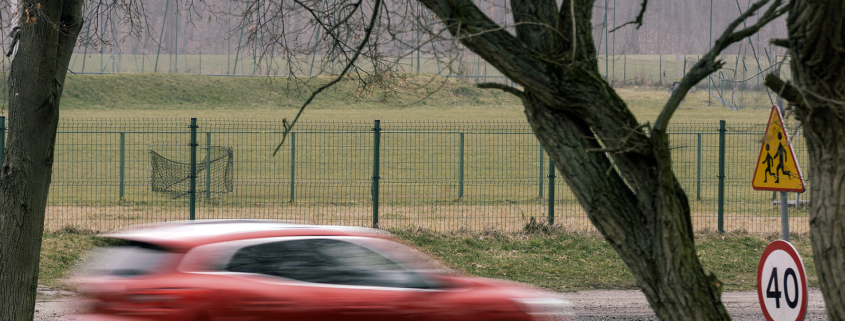The Connection Between Speeding and Fatal Accidents
Speeding is a prevalent issue on Alabama roads, one that is widely underestimated and disregarded by vehicle drivers. The connection between speeding and fatal accidents is undeniable and the consequences can be catastrophic for the victims, including wrongful death. If you lost someone to a fatal car crash as a result of the other driver’s speeding, you should speak with an experienced car accident attorney in Alabama.
The Numbers Connecting Speeding and Fatal Car Accidents
The statistics related to speeding and fatal accidents are a stark reminder of the consequences of this dangerous behavior:
- Higher Fatality Rates: According to the National Highway Traffic Safety Administration (NHTSA), speeding has consistently been a contributing factor in around 33% of all fatal crashes in the United States for over two decades.
- Increased Severity: Speeding not only raises the risk of accidents but also increases the severity of injuries when accidents do occur. The force of impact in high-speed collisions can result in devastating harm to drivers, passengers, and pedestrians.
- Vulnerable Road Users: Pedestrians and cyclists are at a significantly higher risk when drivers exceed speed limits. The likelihood of fatalities in accidents involving these vulnerable road users escalates when speeding is involved.
Speeding Factors That Lead to Fatal Accidents on Alabama Roads
Several key factors explain why speeding is closely linked to fatal accidents:
- Reduced Reaction Time: Speeding reduces a driver’s ability to react quickly to unexpected obstacles or changes in traffic conditions. This diminished reaction time can result in collisions that might have otherwise been avoided.
- Increased Stopping Distance: Faster speeds require longer distances to come to a complete stop. This can lead to rear-end collisions, especially in heavy traffic or adverse weather conditions.
- Loss of Control: Speeding makes it more difficult for drivers to maintain control of their vehicles. When a driver loses control, it can result in rollovers, skidding, and other catastrophic accidents.
- Inadequate Time to Assess and Correct: Speeding drivers have less time to assess the situation and make corrections when they make mistakes. This often leads to more severe accidents as drivers are unable to take evasive actions.
- Severity of Impact: Higher speeds mean greater kinetic energy, resulting in more severe and potentially fatal injuries upon impact. The human body is not designed to withstand the forces generated in high-speed crashes.
A knowledgeable car accident attorney will analyze the unique circumstances surrounding the crash to build a solid claim.
Assessment of Liability in a Speeding-Related Car Accident
Your attorney’s proficiency in analyzing the evidence and applying Alabama’s laws will help you understand who should be held accountable for the injuries and losses. Here are some potential defendants in such cases:
- The Speeding Driver: The most obvious defendant is the driver who was exceeding the speed limit or driving recklessly. They may be held primarily liable for the accident.
- Vehicle Owner: If the vehicle involved in the accident was not owned by the driver but by another individual or entity, the owner may share liability, particularly if they allowed an unfit or inexperienced driver to use the vehicle.
- Government Entities: In some cases, the condition of the road or the presence of inadequate signage may have contributed to the accident. Government entities responsible for road maintenance and safety could be held accountable for their negligence.
- Manufacturers: If a vehicle defect, such as faulty brakes or tires, played a role in the accident, the manufacturer or distributor of the defective product may be liable for product liability claims.
- Third-Party Contractors: If the accident occurred in a construction zone or due to roadwork, third-party contractors involved in the project could be held responsible for unsafe conditions or negligent practices.
Damages Available in Wrongful Death Claims in Alabama
In wrongful death car accident cases in Alabama, damages are intended to compensate the surviving family members for the losses they have suffered as a result of their loved one’s death.
Economic Damages:
- Medical Expenses: This includes any medical bills incurred as a result of the accident, such as hospitalization, surgery, medication, and emergency treatment.
- Funeral and Burial Expenses: The cost of the funeral, burial, or cremation services can be significant, and these expenses are typically covered as part of wrongful death damages.
- Lost Financial Support: If the deceased was the primary breadwinner in the family, the surviving family members may be entitled to compensation for the income and financial support that would have been provided over the course of the deceased’s expected working life.
Non-Economic Damages:
- Pain and Suffering: This category of damages seeks to compensate the surviving family members for the emotional pain and suffering they have endured due to the loss of their loved one.
- Loss of Consortium: Loss of consortium refers to the loss of companionship, support, love, and affection that the surviving family members would have received from the deceased had they survived.
Punitive Damages:
- In some cases where the at-fault party’s conduct was particularly egregious or reckless, punitive damages may be awarded to punish the responsible party and deter similar behavior in the future.
Discuss a Successful Legal Strategy with our Wrongful Death Attorneys to Maximize Damages and Obtain Justice
The compassionate and experienced wrongful death attorneys at the law offices of Frank M. Wilson are committed to seeking justice for your loved one and holding those responsible accountable. Contact us for a free and confidential consultation, where a skilled car accident attorney will discuss your case, explain your legal options, and provide you with the guidance and support you need during this difficult time. Call (334) 738-4225 or write to us online.





Leave a Reply
Want to join the discussion?Feel free to contribute!